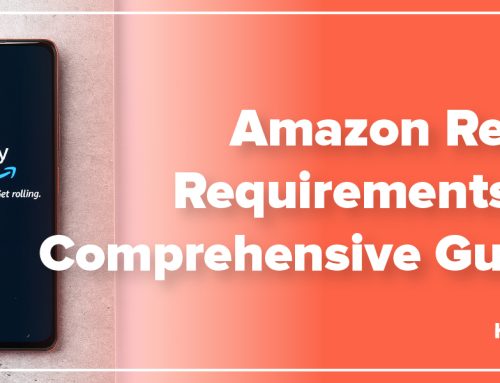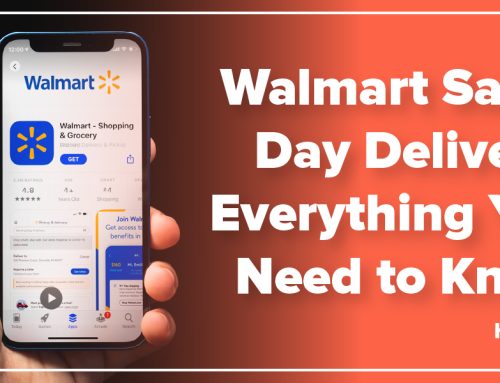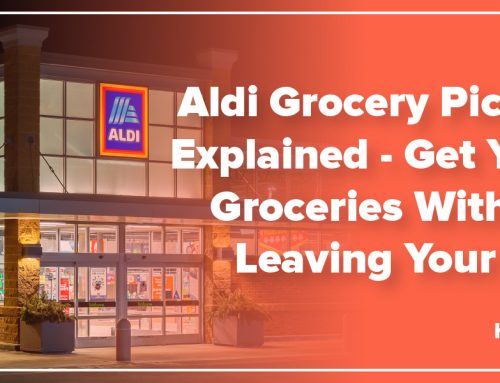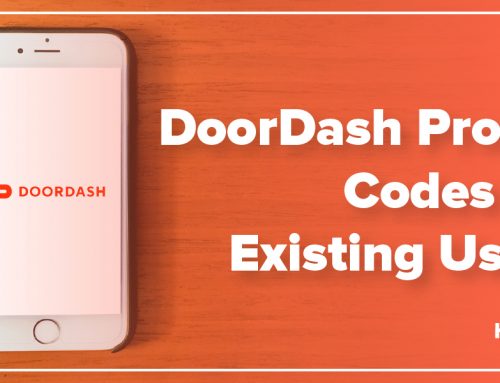
California AB5 is currently up for debate and is important to many drivers. AB5 can have tremendous effects on rideshare and delivery drivers across the state. There are loads of benefits to being a part-time independent contractor, especially if you’re a rideshare driver for Uber and Lyft, or a delivery driver for Amazon, DoorDash, Postmates, or Instacart. However, part-time independent contractors are not protected under the same state labor laws and federal labor laws as full-time employees. That’s why over 385,000 Uber drivers recently sued the company, demanding that they are classified as employees and not independent contractors.
California Bill AB5
California bill AB5, currently up for approval in the California State Senate, aims to change that for independent contractors in the Golden State. If the bill passes, it will effect thousands of California independent contractors by reclassifying them as actual employees.
Proponents of the bill say that all workers deserve basic job protections. Meanwhile, companies like Uber and Lyft disagree, arguing that drivers are not employees because they use their own cars and set their own schedules.
We want to tell you the different sides and opinions about AB5 and how it may effect your independent contractor job as a rideshare driver or delivery driver.
What’s the Difference Between an Independent Contractor and an Employee?
If you want to earn extra income, one of the easiest ways is to find on-demand freelance jobs within the gig economy, which is also known as the sharing economy. Basically, you do these jobs as an independent contractor, and not as an actual employee working for a company. This applies whether you’re a dog walker for a pet care service, a piano teacher for a tutoring agency, or a rideshare driver or delivery driver for an app-based, on-demand ridesharing service. We’ll discuss the difference between an independent contractor and an employee in a moment.
Let’s look at the pros and cons of being an independent contractor.
PROS:
- You are your own boss. You can switch from earning money by giving rides to passengers for Uber and Lyft to delivering take-out meals for Postmates and DoorDash to bringing goods and groceries to customers for Instacart with the simple touch of an app. No one tells you who you can work for or when you can work for them.
- You’re not sitting in an office all day. You’re out among people; driving them, walking their dogs, delivering them food and groceries etc.
- You work as much or as little as you want, on your schedule.
- Take a break whenever you want if you don’t feel like working at a certain time during the day.
- You can write off a percentage of your car mileage and work-related business expenses at tax time, as long as they relate to the freelance job you’re doing.
What is tax deductible for Uber drivers and Lyft drivers?
Click HERE to take a look at the long list of items you can deduct as a rideshare driver.
There are cons to being an independent contractor as well.
CONS:
No access to…
- Unemployment insurance
- Health care subsidies
- Paid parental leave
- Overtime pay
- Workers’ compensation in case of an on-the-job injury
- Guaranteed hourly minimum wage
- Social Security contributions
- Guaranteed work or earning on any given day
How to Distinguish Between an Employee and an Independent Contractor
Several years ago, delivery drivers for the Dynamex shipping company sued their California employer. They were tired of being treated as independent contractors with no labor protections and no health benefits. The drivers felt that since they were forced to wear a Dynamex uniform on the job while using their own cars, as well as paying for their own car-related expenses, that they should be considered employees. In 2018, the California Supreme Court ruled in favor of the drivers, awarding them minimum wage payments and overtime pay.
The Court also developed a special test that businesses must use in order to answer the question, “what is an independent contractor” as opposed to an actual employee. It’s called the “ABC test”.
To classify a worker as an independent contractor:
- The worker must be free from the control and direction of the company in connection with the performance of the work.
- The worker performs work that is outside the usual course of the company’s business.
- The worker owns an independent business that does the same kind of work as the hiring company.
According to the ruling, if a worker does not meet all three of the above conditions, they must be classified as an employee. AB5 takes the California Supreme Court’s ruling to the next level:
If AB5 passes in the State Senate, all independent contractors who are reclassified as employees by the ABC test must be granted the following by their employers:
- Unemployment insurance
- Health care subsidies
- Paid parental leave
- Overtime pay
- Workers’ compensation
- A guaranteed hourly minimum wage
- Social Security contribution
Hundreds of thousands of rideshare drivers, delivery drivers, and other kinds of independent contractors in California could become employees and therefore qualify for the above labor protections.
Why Do Uber and Lyft Drivers Think They Should Be Employees?
Drivers have taken Uber to court, claiming they’ve been misclassified as independent contractors on purpose so Uber could save money. Remember the ABC test we mentioned? Rideshare drivers believe strongly that they do not meet the conditions for independent contractors and should be reclassified as employees.
Regarding condition A): The worker must be free from the control and direction of the company in connection with the performance of the work.
- Drivers claim they are not free from the companies’ control or direction:
- The companies impose strict rules regarding the condition of their personal vehicles.
- The companies’ algorithms determine the ride requests that drivers receive or don’t receive.
- The company determines the routes that drivers must take in order to transport a passenger from Point A to Point B.
Regarding condition B): The worker performs work that is outside the usual course of the company’s business.
- Rideshare drivers firmly believe that the transportation of passengers from Point A to Point B is completely within and not outside the usual course of Uber’s and Lyft’s type of business. Why? because Uber and Lyft are in the business of hiring drivers to transport passengers, and that’s exactly what thousands of rideshare drivers do every single day. This is the point that analysts feel will be impossible for Uber and Lyft to fight.
Regarding condition C: The worker owns an independent business that does the same kind of work as the hiring company.
- As stated in Condition A, rideshare drivers feel that they are under the strict directions and guidelines of the companies they drive for. Therefore, it is impossible for drivers to run their own independent rideshare business while transporting Uber and Lyft passengers. One of the best ways to make more money with Uber and Lyft is for drivers to qualify for rideshare bonuses. Drivers must accept as many ride requests from the rideshare companies as possible in order to receive these important financial incentives. Because of this, drivers say there is no room in their schedules to run an independent rideshare business while they’re picking up passengers for Uber and Lyft.
These three reasons are why political experts believe that Uber and Lyft will have no choice but to reclassify thousands of independent contractor rideshare drivers as employees.
Why Don’t Uber and Lyft Want The AB5 Bill to Pass?
Uber and Lyft are adamant that their drivers do not qualify to be employees.
- The companies claim they never control when or how long their rideshare drivers work.
- Uber and Lyft do not provide vehicles to their drivers, therefore, the drivers are not employees.
- Perhaps the most important reason that Uber and Lyft don’t want AB5 to pass is that the companies would have to pay hundreds of millions of dollars in employer taxes to the California tax board as well as health benefits, overtime pay, unemployment insurance and more to drivers.
- Rideshare companies do not want drivers to have the power to form unions or negotiate contracts.
What Happens If The AB5 Bill Passes?
- If AB5 passes, Uber, Lyft, and all other companies that hire independent contractors would have to use the ABC test in California to determine if a driver is an independent contractor or an actual employer.
- According to Wall Street analysts, Uber and Lyft will need to pay over $3,600 to each reclassified employee driver per year in order to cover the cost of Medicare, FICA, and other payroll items. This will add up to over $300 million annually per company. And that’s just in California.
- A precedent will be set in the state of California by the passing of this bill. This type of employee reclassification could quickly spread to other states.
- Independent contractors will finally receive the labor protection laws and benefits that regular employees receive.
- It’s important to know that the state of California has a lot invested in the passing of this bill. Why? Because the state’s treasury would receive an estimated $7 billion in annual tax revenue that it’s currently not receiving from on-demand rideshare companies.
Will the Passing of Bill AB5 Provide More Protection For Rideshare Drivers?
In some cases, absolutely. The bill will force companies like Uber and Lyft to offer more protection for their drivers. For example, a big dilemma that rideshare drivers are talking about right now is what to do when a prospective passenger turns out to be an unaccompanied minor. In other words, is there an age limit for Uber passengers that drivers must enforce, even if it denies them a payment?
If AB5 passes, will Uber and Lyft offer better protection for drivers who find themselves picking up an unaccompanied minor? This is one of the questions that drivers hope will be answered if AB5 passes in the California State Senate.
Conclusion
If AB5 passes, thousands of California independent contractors, including Uber and Lyft drivers, will more than likely become employees of the companies they drive for. They will receive the same labor protections and benefits that regular employees receive, such as overtime pay, unemployment insurance, minimum wage guarantee, workers’ compensation, Social Security contributions, and more. Also, companies like Uber and Lyft will need to provide more labor and legal protection for their drivers. If the bill passes, the companies would need to address that the change may result in higher prices for consumers, or even bankruptcy for the companies themselves. The real winner could be the state of California, which would suddenly rake in $7 billion in tax revenues. No matter what side you’re on, AB5, if it passes in California, will be a landmark decision that could effect the future of independent contractors across the United States.
Disclaimer
Actual earnings may differ and depend on factors like number of deliveries completed, time of day, location, and expenses. Hourly pay is calculated using average Dasher payouts while on a delivery (from the time you accept an order until the time you drop it off) over a 90 day period and includes compensation from peak pay, tips, and other incentives.





I only found out about this because I am an independent artist and was told I will become an employer of every musician I hire to help me make music!! I also drive for DoorDash on the side. What am I going to do?? I cannot become an employer to people. I’m a starving artist!!
I have read this article. it is pretty informative. thank you for sharing and adding knowledge.